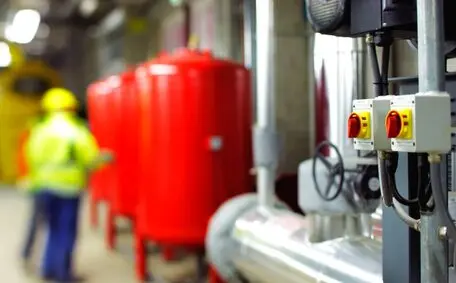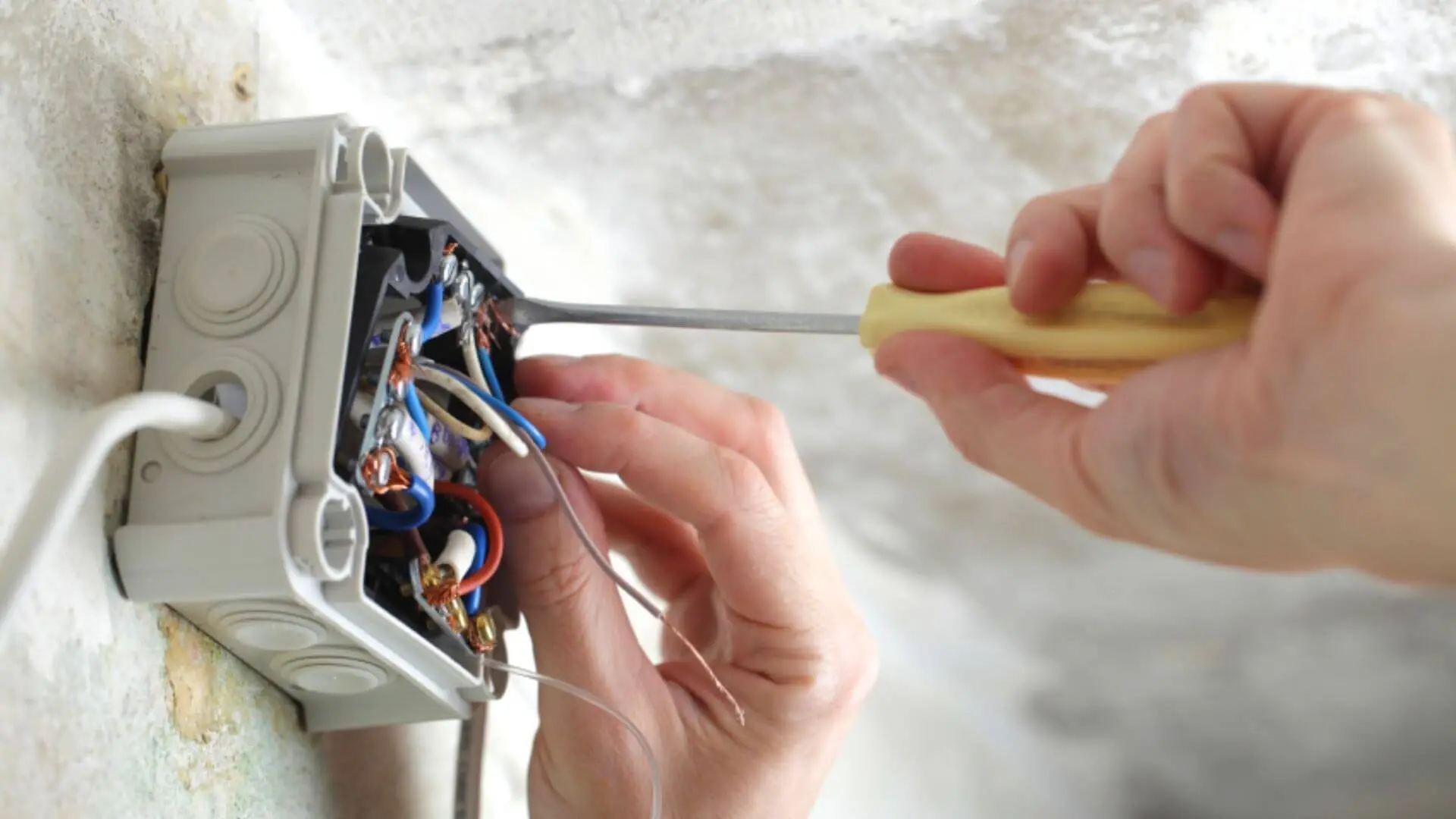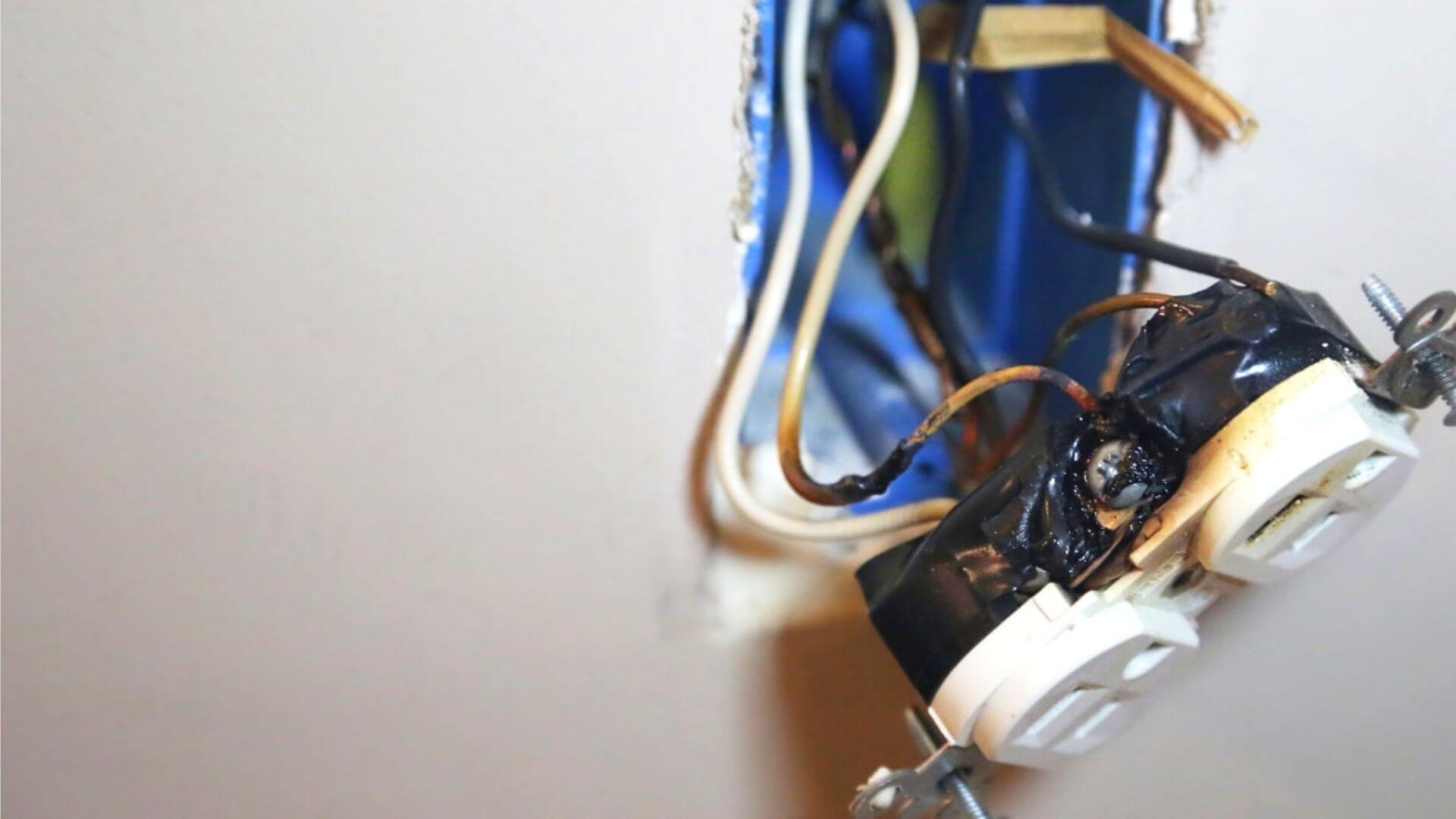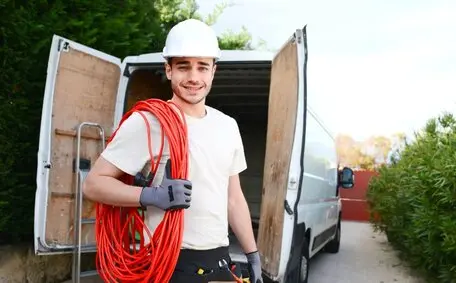
7 Signs You Need An Emergency Commercial Electrician
Wondering whether to call a commercial electrician? We suggest that you read our guide and never disregard your gut feeling to call an emergency electrician.
Read MoreElectricity is necessary for everyone, yet most people don’t know how to respond to a spark or a short circuit, which can lead to an electrical emergency!
Keeping your electrical appliances and home’s system well-maintained greatly reduces the risk of emergencies. However, unforeseen issues like an overloaded circuit causing shocks or a small electrical fire can still pose a threat. That’s why it’s crucial for everyone to know how to handle these situations if they arise.
With that in mind, let’s explore some standard emergency response procedures. These will guide you in creating an effective plan for tackling electrical crises.
Before a detailed discussion regarding the steps and procedures for responding to commercial electrical emergencies, let’s discuss some of the reasons behind electric shocks. These include:

Faulty or damaged cords in your homes, like extension cords or others, should not be kept on your property under any circumstances. You must discard them immediately and replace them with new ones.
Any faulty or damaged wiring in your electrical appliances increases the risks of electrical shocks and electrical fires. So, call upon a professional agency to repair or replace them immediately.
It is the primary reason behind most of the common electrical emergencies in Australia. Call our professionals immediately if you believe there may be faulty wiring in your commercial building.
If something terrible happens, like a fallen power line causing a power outage, the most brilliant move will be:
Always keep water far away from your electrical appliances to prevent the risk of shocks or short circuits.
You should always keep updated fire extinguishers and an emergency contact list of professional agencies. You can obtain it from any government website or agency in Australia.

Updated fire extinguishers are necessary for businesses, offices, and other commercial spaces. Similarly, factories and industrial sites should always stay prepared with an adequate fire extinguisher, depending on the size of the area. Use a fire extinguisher for any electrical fires.
Prepare a list of numbers you can contact in an electrical emergency and display it in a visible area, such as the fridge or kitchen counter.
These situations can be terrifying, so you shouldn’t panic but remain as calm and composed as possible. And always contact emergency services as soon as possible.
Likewise, suppose a person has been injured by electrical shocks or subsequent electrical fire; in that case, they might receive burns on the body, be unable to breathe correctly and be unconscious with a weak pulse. And here’s what you can do in such a situation:

If your friends, colleagues, or a family member have received an electrical shock, you’ll instinctively want to help them by providing them with first aid. But first, stop and think. Since the human body is an excellent electrical conductor, the charge residing within the body might just get passed onto you. Hence, you must be careful, as electricity can be highly fatal.
Also, make sure that no water is spilled on the site. Water is an excellent conductor that can pass electricity through it. So, I don’t move around until the main power is turned off. But if you have to, be careful to avoid any open wires or water spills.
Ideally, steps 2 and 3 require a third person to stay with the person who has been electrocuted. But if you don’t have additional help, call the emergency services as soon as possible.
Many electric shock victims need urgent medical help, so inform the emergency crew about the incident. This ensures they’re prepared with the right gear and support.
Before you try to do anything, turn off the main power. This will make the site safe for moving around until the emergency crew arrives and prevent further damage.
If you cannot safely turn off the power (especially if the victim is stuck to the gridline), try to remove him using a broomstick or other non-conductive items.
After safely moving the victim, you can administer first aid. Electric shocks can cause burns, cardiac arrests, and even be life-threatening, so apply first aid based on the injury’s severity.
For example, treat the burns with cold water and then cover them with dressings (if the individual is conscious and responding). And if they are not breathing, perform CPR until a team of professionals arrives on site.
Whether you manage a commercial building or run a small business, you must be aware of common electrical emergencies you may face in your facility. Power outages, overheating, short circuits, fires and lightning strikes are some of the most hazardous electrical issues that can arise and disrupt your operations.
A loss of power supply can occur due to storms knocking down power lines, equipment failures within your electrical systems, or other utility issues out of your control. Without electricity, you’ll have to halt work and activities, which can cost you time and money. That’s why having emergency backups and procedures in place is critical.
It would be best to watch for signs of overheating or overloading electrical equipment. This often develops from a lack of proper ventilation that allows heat to build up within devices over time. Left unattended, overheating components pose a severe risk of firestarting. Be sure to perform routine checks for heating problems.
Short circuits and electrical fires should also be considered, as the electrical arcing they produce can quickly ignite combustible surfaces. Faulty appliances or corroded wiring are typical causes. Given how rapidly blazes can spread, early detection and response are your best defence.
Finally, don’t forget the dangers of lightning during storms. Strikes can lead to equipment damage or system failures through power surges. Be prepared with surge protection and know how to shut down sensitive devices when storms approach. Understanding these common electrical hazards, you can proactively maintain safety within your commercial setup. Working with licensed electricians is vital to addressing issues before they escalate into emergencies. Staying informed is your first step to prevention.
If you experience a commercial electrical emergency, it is essential to take the following steps:
If you are concerned about the safety of your commercial electrical system, it is essential to have it inspected by a qualified electrician regularly. This will help identify potential problems and prevent them from becoming serious emergencies.
Commercial electrical emergencies can significantly disrupt business operations and even be dangerous. It is essential to be prepared for these emergencies and to know what steps to take to respond. This section will provide you with information on the different types of commercial electrical emergencies and the steps that should be taken to respond to every kind of emergency.
If you experience a power outage, you should check to see if it is a widespread outage or just affecting your business. You can do this by checking the power outage map on your utility company’s website or by calling them.
If the outage is widespread, there is not much you can do but wait for the power to come back on. However, if the outage is affecting your business, there are a few things you can do to minimise the impact:
Once the power comes back on, you must check all your appliances and electronics to ensure they work correctly.
If an electrical appliance is overheating, you should first turn it off. Please do not attempt to use the appliance until it has had a chance to cool down.
If the appliance continues to overheat, a qualified electrician must have it repaired or replaced.
A short circuit is a dangerous situation that can cause a fire. If you see or smell smoke or hear a loud noise from an electrical appliance, the first thing you should do is turn off the power to the appliance.
Do not attempt to touch the appliance or any exposed electrical wires. Once you have turned off the power, call a qualified electrician to repair the short circuit.
If you see a fire, the first thing you should do is evacuate the area. Do not attempt to put out the fire yourself.
Once you have evacuated the area, call 000 (emergency services).
If your business is in an area prone to lightning strikes, it is essential to protect your electrical system. You can do this by installing a lightning arrester on your electrical panel.
If your business is struck by lightning, you should first turn off the building’s power. Do not attempt to use any electrical appliances or electronics until a qualified electrician has turned the power back on.
Several Australians are killed or severely injured yearly on job sites or homes by getting electrocuted. Not only does it affect the victims and their families, but it also places severe consequences on the business itself.
In this regard, various safety training courses are running in the country. These courses engage people in real-life simulations and train them to deal with such situations effectively. So, consider enrolling in one today.
If you require an emergency electrician in Sydney at any time or have questions about electrical safety, please get in touch with the team at Bright Force Electrical. We offer a fast, 24/7 urgent response unit for commercial and residential electrical emergencies.
That wraps up our guide for today. Catch you next time!
Until then, take care and goodbye!
Did you enjoy reading our article “How To Respond To Commercial Electrical Emergencies?”? We have many related articles you may also be interested in reading, like the below:
Wondering whether to call a commercial electrician? We suggest that you read our guide and never disregard your gut feeling to call an emergency electrician.
Read MoreIt can be confusing to know what a commercial electrician does, and when exactly you need one. So, read our guide to discover what installation, repairs and maintenance jobs your local commercial electrician can handle!
Read MoreLearn how to make the best choices for your commercial space’s lighting needs. Find out about key considerations and expert tips.
Read MoreWe will call back as soon as possible.



